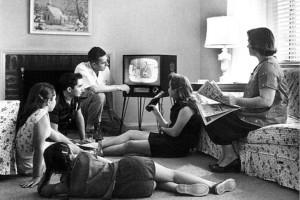
My latest piece is now online at the Institute for Family Studies. It’s a look at what it would take to make more family friendly cities. Here is an excerpt:
In January, Malaysia Goodson was killed when she fell down the stairs at New York’s 7th Avenue subway station while carrying a stroller with her one-year-old daughter in it. The baby girl survived but now faces life without her mother.
The 7th Avenue station is one of many in the city without elevators. Only about a quarter of New York City subway stations have elevators. This not only renders them inaccessible to many who are disabled, but it also makes them impossible or dangerous to traverse for families with strollers. The sight of someone carrying a child in a stroller up or down subway stairs is a regular occurrence.
Goodson’s death hit home for my wife and me because just two days earlier, we had gone through that very station with our own one-year-old son in a stroller. Having two of us to carry the stroller down the stairs made it a safer but hardly pleasant experience. When she is out with our son by herself, my wife tries to limit herself to only accessible stations, having to consult not just the map but the transit agency’s elevator status page before each trip, because, on average, every elevator breaks down once a week. For those who have to ride with young children daily, such as parents dropping their kids off at day care, it’s inevitable they will be confronted by non-functioning elevators at times.
Navigating city transit systems with a stroller is one of the many challenges that face families, especially those with young children, in the cities. While cities in many ways are great places for families, overall they present many obstacles to raising children, such that empirically, the number of children, particularly school-age children, has fallen significantly in major cities. The future of the city, as Atlantic writer Derek Thompson recently put it, is childless.
But is it fated to be that way?
Click through to read the whole thing.
This piece originally appeared on Urbanophile.
Aaron M. Renn is a senior fellow at the Manhattan Institute, a contributing editor of City Journal, and an economic development columnist for Governing magazine. He focuses on ways to help America’s cities thrive in an ever more complex, competitive, globalized, and diverse twenty-first century. During Renn’s 15-year career in management and technology consulting, he was a partner at Accenture and held several technology strategy roles and directed multimillion-dollar global technology implementations. He has contributed to The Guardian, Forbes.com, and numerous other publications. Renn holds a B.S. from Indiana University, where he coauthored an early social-networking platform in 1991.
Photo credit: Wikimedia Commons/ Evert F. Baumgardner












